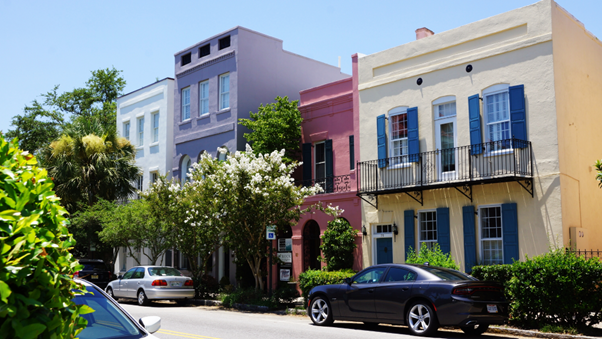Table of Contents Show
Many people today prefer changing their living place to those they consider more pleasant.
It’s commonplace for people to want to move to the coastline and spend their lifetime there, but there are some aspects you shouldn’t miss.

If your interest is new homes, Charleston, SC – you better pay attention to its location and the consequences it may have on your life if you move there.
Why Is Geography Important in Defining How Comfortable Your Living Will Be?
The environment we live in has the most invisible yet significant impact on our lives.
It’s the thing our organism is used to, and much depends on changes the climate has.
It’s most visible in people who never changed their place of living and have health problems due to global warming.
After the basic parameters such as temperature and humidity, we dig deeper and analyze what results from changing climates.
The entire ecosystem of the area depends on two abovementioned factors, so it determines what plants and veggies grow there, what animals or fish live around, and how it’s connected to insects and other ecosystem elements.
Consequently, it defines your diet.
Finally, geographic parameters are among the first to rule people’s lifestyles. It touches on business, transport, free time, culture, traditions, politics, and every other aspect of life.
So, when you’re going to leave one area and move somewhere with a different climate and geographical characteristics – be ready to change your life completely.
Geographical Peculiarities of Charleston You Need to Know
We clarified that moving to another area you never lived in may be a challenge, but what does it mean in the case of Charleston, SC? Below, you’ll find some features that distinguish this city from others.
Landscape
Let’s start with the scenery where Charleston settles:
- Charleston is situated along the Atlantic Ocean coast, so the area has magnificent maritime culture and ocean views to enjoy. However, any city located on the ocean coast gets exposed to hurricane and flood risks. People here are to live being ready for alerts because of natural disasters.
- Much of Charleston is located at or just above sea level. If any heavy rain or high tide happens, it affects people’s lives. It disrupts daily life, affects transportation and supplies, and causes property damage.
- Charleston is full of tidal creeks, marshes, and estuaries. Such landscapes are marvelous to observe and can be a great source of inspiration for people with creative minds. But these areas are perfect for multiple insects and pests to develop in large populations, which results in certain discomfort related to pest control and health issues.
- The city has a historic layout with narrow streets that can lead to hard traffic, especially in popular areas. Local authorities try to address this issue by improving infrastructure and developing better logistics.
All the mentioned factors give an image of what moving around the city looks like and how it can be interrupted.
However, it’s still necessary to learn what measures local communities offer to facilitate the troubles.
Climate
The coastline location explains much about the climate in Charleston. Some of the most peculiar traits are the following:
- Charleston has a humid subtropical climate with hot and humid summers. A combination of these two factors may be crucial for people with heart or respiratory problems. It’s a deal even for a completely healthy person who’s never lived in such conditions before because heat exhaustion and heat stroke can be a concern.
- Charleston has a unique ecosystem that’s home to diverse plant and animal species. Local authorities and citizens contribute to protecting this diversity. As a newcomer, you should be mindful of local conservation efforts and ecological impact.
- Don’t miss the aspect of global climate change that results in sea level rise. The mix of rising water levels and sinking land makes Charleston vulnerable to increased flooding (storm surges, high tides, etc.). The city is putting efforts into facilitating these troubles, but the long-term consequences of climate change are inevitable.
As you can see, climate conditions may be tricky for some people.
Getting used to the abovementioned will be particularly complicated for people who spent their lives in Northern areas.
People and Lifestyle
As we mentioned, location defines culture and lifestyle, and here you can see these specifics of Charleston:
- The city is a popular tourist point because of its landscapes and historical background. Its touristic popularity leads to seasonal population and traffic fluctuations, which affects locals’ daily routines. During peak tourist seasons, residents might experience harder traffic and supply delays.
- The city is attractive due to its historical significance and architectural charm. So strict regulations are set about customizing and renovating historic properties. It shouldn’t be a problem if you buy a construction home, but it’s better to get acquainted with the community restrictions.
So beautiful exteriors and rich background make this place interesting for tourists and freshly arrived potential residents.
However, to enjoy these advantages, you get ready to not be able to do anything you want.
Health
Finally, as we told you about climate challenges, let’s turn our sight to possible health problems you can encounter.
- Warm climate, moisture, and vegetation combined can cause mold to grow and allergens to expand. It’s a concern for individuals with respiratory issues. Additionally, a marshy environment is perfect for mosquito breeding, which can increase the risk of vector-borne diseases.
- Charleston’s pleasant weather encourages outdoor activities. Generally, it’s positive for physical and mental well-being. However, newcomers must be aware of the potential sun and heat negative effects and take necessary precautions.
Health issues are mostly related to heat or insects, so if you take the necessary precautions, you can easily avoid discomfort.
Moving to a coastline city sounds romantic and promises fresh morning breezes, but has some pitfalls to consider.
If everything above doesn’t scare you but encourages you – take your chance to feel that vibe of a hot summer in a historical city!









